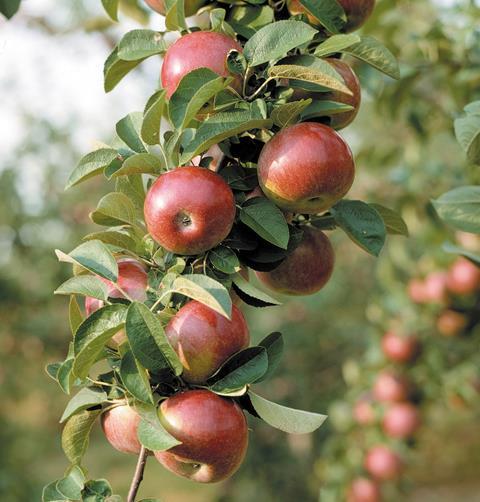The grower body wants more supermarket investment in selling and promoting British apples in stores this season

Grower organisation BAPL has appealed to all UK supermarkets to boost their uptake of British apples this coming season and invest in initiatives to reinvigorate the domestic apple category.
Speaking at a retail webinar on Tuesday (16 May), BAPL executive chair Ali Capper said the UK topfruit sector would like each retailer’s share of British apple sales to exceed their UK grocery market share during the 2023-24 season. Domestic apples currently account for about 40 per cent of all apples sold in supermarkets, and BAPL would like that to grow, she said.
Capper added that BAPL has designated October 2023 as British apple month and wants to work with retailers to create “more instore theatre” around the new domestic season.
The board has asked retailers to collaborate by investing in in-store promotions and sampling to drive consumer behaviour, and in return will promote individual retailer British apple packs across BAPL social media platforms, she said.
Over the course of British apple month, BAPL would like to see British Gala apple sampling in 50-100 stores per retailer; life-size posters of UK apple growers in store; prominent union jack apple fixtures at point of sale; better aisle-end support for British apples; clear British apple visibility for online shoppers; and social media and marketing support for British apples and British apple month.
BAPL singled out Aldi and Lidl for special praise in championing British-grown apples in stores last season.
Running through last season’s sales figures, Capper said the UK discounters were standout winners when it came to their percentage share of British apples sold between September 2022 and April 2023.
Selling 26,100 tonnes and 18,200 tonnes of British apples respectively, Aldi and Lidl’s sales far exceeded their supermarket market share, she said.
Aldi’s volumes represented a 20.6 per cent share of total British apple sales, yet its grocery market share stands at 10.1 per cent. Meanwhile, Lidl’s volumes accounted for 13.4 per cent of total sales, and its grocery market share is 7.6 per cent.
Capper said that BAPL retail figures also showed significant year-on-year British apple sales growth from the UK’s number one supermarket chain Tesco, which sold 27,000 tonnes, up from 20,000 tonnes the prior season. Yet, at 21.9 per cent of British apple market share compared to its 27 per cent share of the total UK grocery market, its overall performance lagged behind the discounters.
Sainsbury’s uptake of British apples during the 2022-23 season, meanwhile, was “fairly static” at 21,200 tonnes and Asda’s British apple share remained very low (6,100 tonnes), Capper said.
In total, some 111,000 tonnes of British apples were sold last season, representing 54 per cent of the total crop produced. While similar to previous seasons, Capper said that the British apple industry would like this percentage to be much higher.



